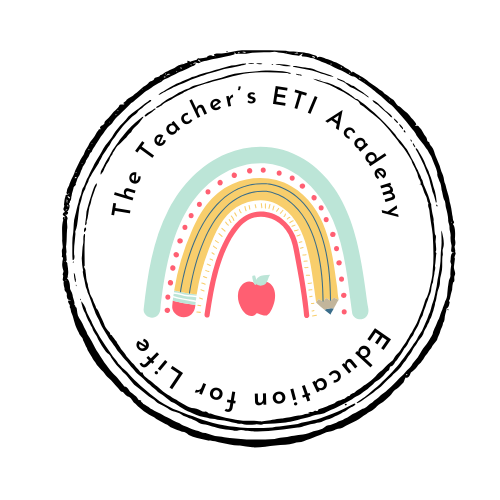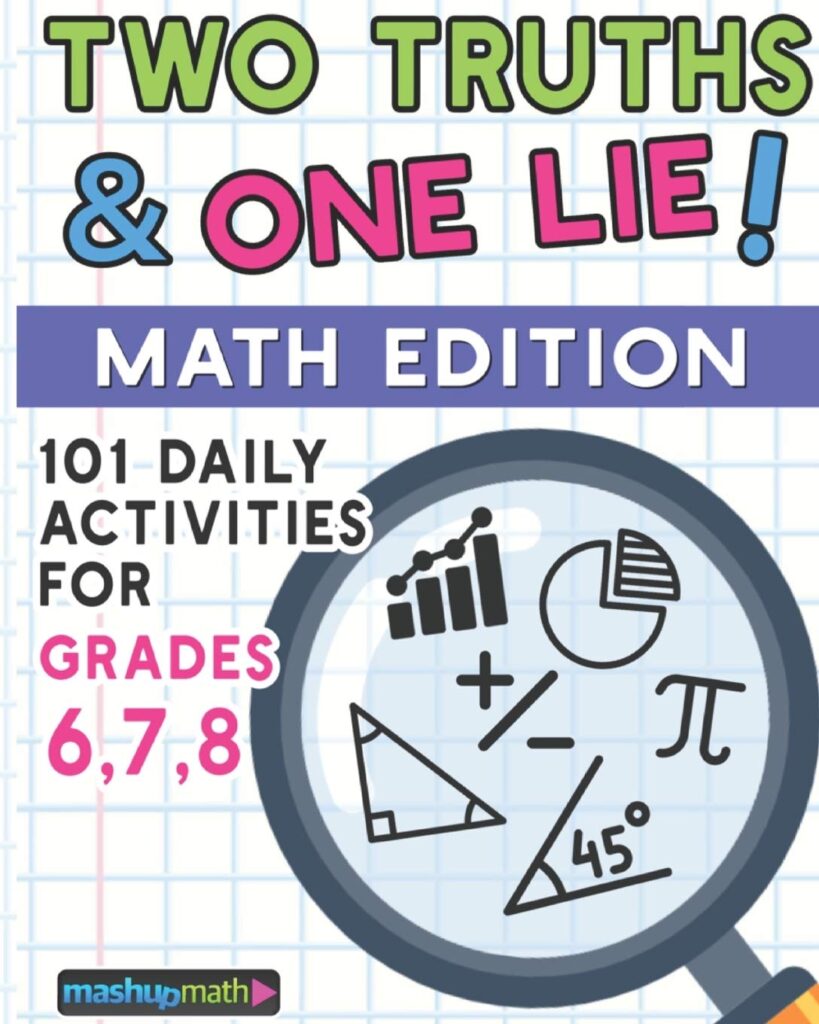How to Teach Math as a Language
In this article we look at how to teach math as a language in the middle school math classroom and beyond. The view of math as a language is something that may help students learn concepts in unique ways since math is something unviersal.

I debate the way math as a language should be presented to students in the classroom to help build their math skills.
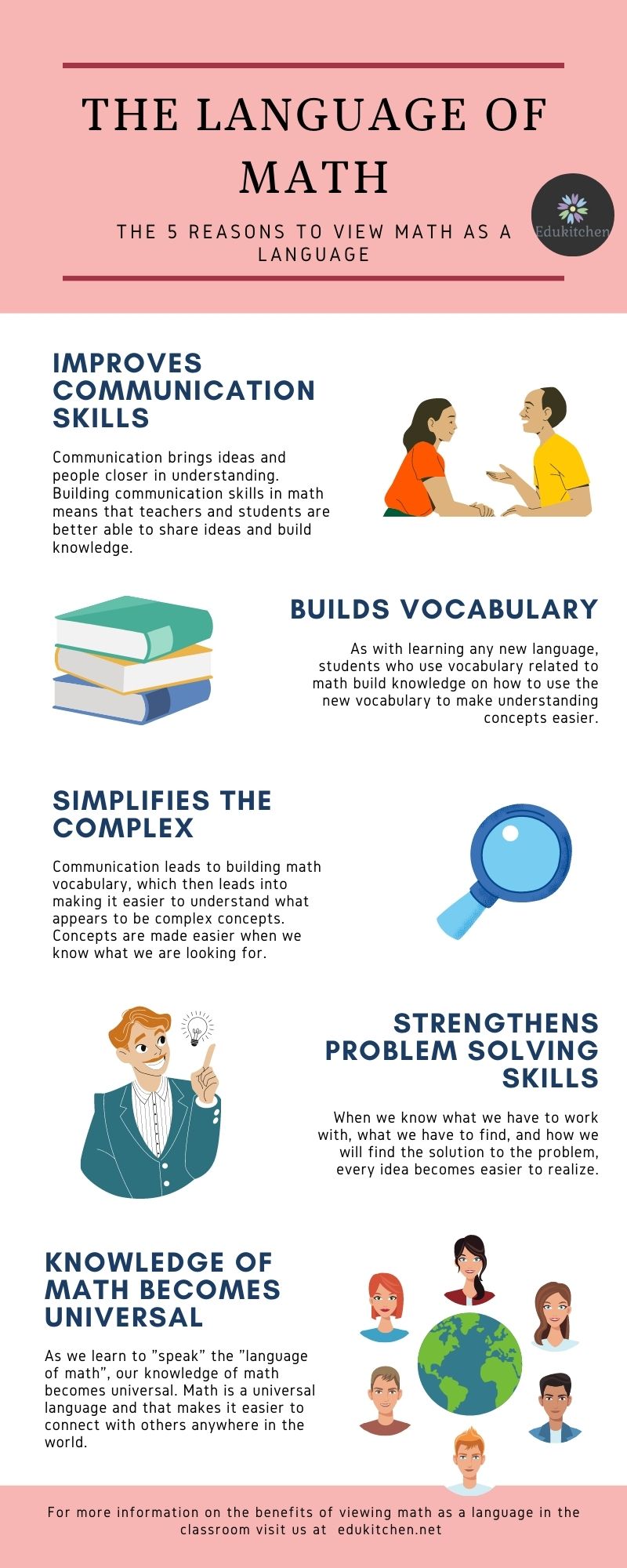
Join me as I take teachers through the phases of looking at math in fun and interesting ways – such as a new universal language. We show teachers how to teach math as a language.
Click to view this and other selections of digital products
A Look At How To Teach Math As A Language
This blog contains affiliate links to highlighted websites and/or resources. By clicking on the link and making a purchase we may earn a small commission at no extra cost to you. Click here for full disclosure.
Watch our video below to see that when teachers and students communicate using math symbols and vocabulary, it is similar to communicating in a known spoken language.
Note: In the video and post below, we compare math language to the English language.
It may also help with making math easier to learn and with improving learning goals.
Why View Math as a Language?
Students in a math class need to be able to communicate their answers in clear and easy to follow steps. Often times students would rather avoid communicating a response and just give the final answer.
However, when teachers insist that students communicate the steps to answers using math vocabulary, students will see (eventually) that it proves to be an invaluable tool for a solid understanding of the concepts.

How Should Students Understand Math as a Language?
We believe that it is important for the student to take the time to go through explaining each step.
Students at first may complain or feel like it takes a long time to explain each step in answering a question for a simple answer, but as students get used to communicating the process it will become more apparent to them that they are speaking a new language – the language of math.
How Should Teachers Teach Math as a Language?
The ETI Academy believes that the way we see math may help in whether we feel capable in understanding the concepts.
Math contains it’s own set of “vocabulary” and “symbols” and therefore, why can’t we use math in the same way as – say for example – we use English?
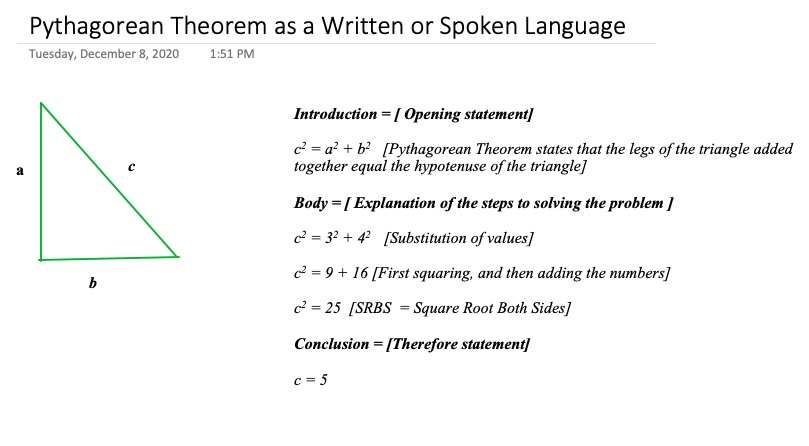
In order to explain what we see we use math vocabulary through the medium of English language.
The Benefits To Viewing Math as a Language
If students were given the opportunity to see that when we use math vocabulary in writing the steps to a math solution, it is like writing an outline of an “English” paragraph, they may find the following benefits:
Here now is our list of the five benefits to viewing math as a language.
I. Enhances Communication
When teachers and students continually make use of the math vocabulary in explaining answers, it may make communication of topics easier to understand between them.
It may also make it easier for students to explain their answers to the teacher or others students when they are comfortable using the math vocabulary.
Therefore, we teachers get students into the habit of answering or explaining math concepts, communication will be easier for all!
When it becomes easier to explain concepts, this builds confidence and enthusiasm in both teachers and students.
II. Improves Vocabulary
In explaining concepts in math, previous knowledge of vocabulary allows for teachers and students to gain understanding of new and related vocabulary in more complex concepts in math.

III. Simplifies Knowledge of Complex Math Concepts
Improving math vocabulary not only allows for better communication of concepts in math, it also makes learning more complex math concepts easier.
Complex math concepts build on previous knowledge, and therefore when students are comfortable communicating previous knowledge, the transition to more complex knowledge becomes easier to understand.
IV. Strengthens Problem Solving Skills
In understanding how to approach math word problems, connections to language need to be met.
When attempting to answer math problems written through words, we must translate written words into math vocabulary. In being able to do so, will make it easier in following the important steps to problem solving in math .
V. Recognizes Math is a Universal Language
When students become comfortable using math vocabulary and learning to speak math language. it makes it easier to connect with international students when it comes to math.
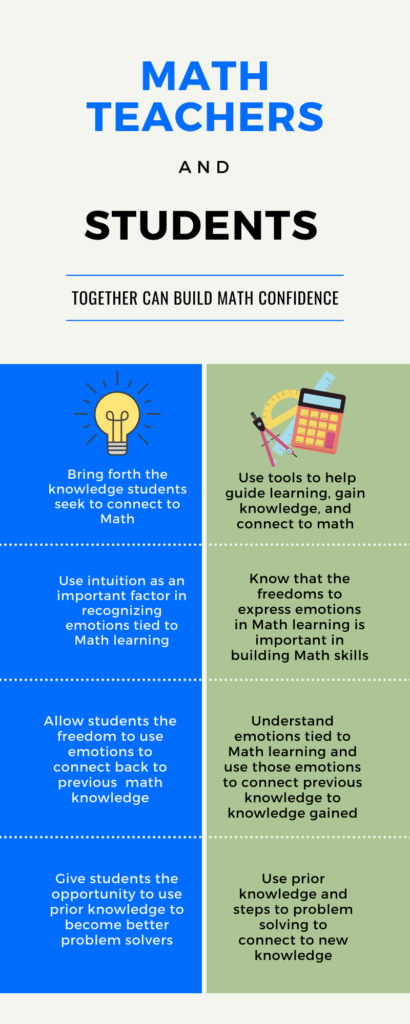

Students make speak different languages outside the math classroom, but when they switch to understanding math, it may connect students from different backgrounds. math, when seen as a “universal” language, brings students from around the world together in shared knowledge.
Related Topics
Check out our other articles related to math teaching and learning.
- Math Oral Presentation Rubrics for Teachers
- 5 Ways Teachers Can Help Students Overcome Math Anxiety
- Is Math Really That Hard? A Deep Dive
- 3 Simple Math Problem Solving Tips for Success
- 5 Ways Students Can Improve Math Skills
- 5 Ways to Stay Organized in School
- Try Our International Pi Day Poster Activity Students Will Love!
Join Us Today!
Final Thoughts…
The five benefits to viewing maths as a language mentioned in this article are really meant to show that math is not something to be afraid of.
Because the truth of the matter is that math can make people feel ashamed and embarrassed about how they think if they don’t understand it.

When we allow students to take their own unique approaches to communicating what they do or don’t understand when it comes to math, then their emotions towards the subject may change for the better.
Share Your Thoughts
Leave us a comment below and share your thoughts on this article and our suggestions for recognizing math as a very different but special kind of language we can all learn!
Let us know if you agree or disagree with the way we believe math should be presented to students.
